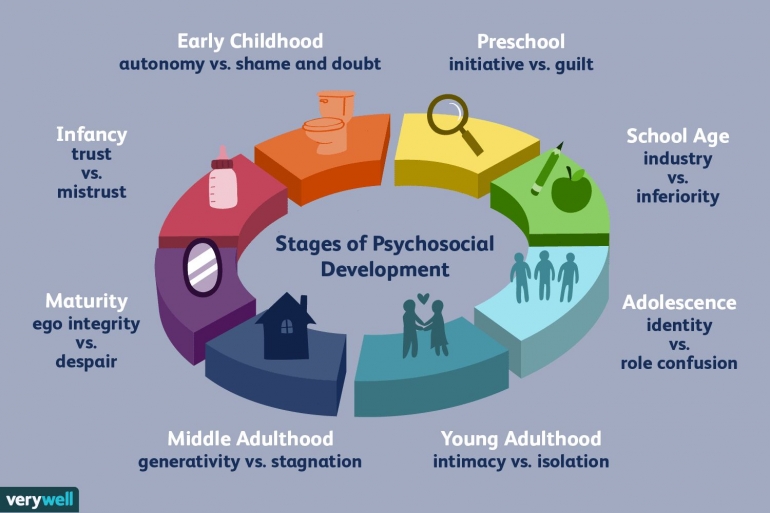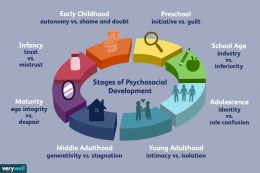Erik Erikson, an American psychotherapist, established the notion of the eight ages of man in 1950, laying the groundwork for evolutionary psychology. In it, he claims that from birth to old age, we go through eight conflicts that allow us to grow psychosocially and personally. "We grow psychologically" when we encounter and effectively settle disagreement. However, if we cannot resolve these conflicts, we may not gain the required abilities to tackle what lies ahead.
Stage 1: Trust vs. Mistrust (0 - 18 months of age)
During this stage, the baby develops trust in his or her surroundings and in his or her parents. This will be defined by the baby's bond with them, especially with the mother, as she is the one with whom the child spends the most time.
Erick called this the "attachment connection," and it will affect the child's psychosocial development throughout her life. If her parents do not provide a safe environment and do not meet her basic and affective needs, the child will grow up feeling frustrated and suspicious of people and the world.
Stage 2: Autonomy vs. Shame and Doubt (18-months-to-3-years)
At this stage, the child gains independence by learning to walk and speak, managing the toilet, and expressing his likes and dislikes. With more "control" over his body and environment, he develops a feeling of autonomy.
During this period, it is critical to provide them the opportunity to decide, such as selecting clothes for the day, setting the first limits and rules at home, or offering little obstacles appropriate for their age. After successfully passing this stage, children gain more self-esteem and become healthier and stronger.
Stage 3: Initiative vs. Guilt (3 - 5 years)
During this time, they grow more interested in their environment and in interacting with their peers. The game is quite important, and it will allow you to explore your talents and abilities. Children are inquisitive about everything. They touch, look at, and treat everything as if it were a toy, so there are shattered vases, paintings on the wall, and other ingenuities that are often difficult to believe can exist in such young brains.
Guilt is useful in the sense that it serves to identify that something has gone wrong; this feeling in excess is one of fear's most powerful nutrients.







